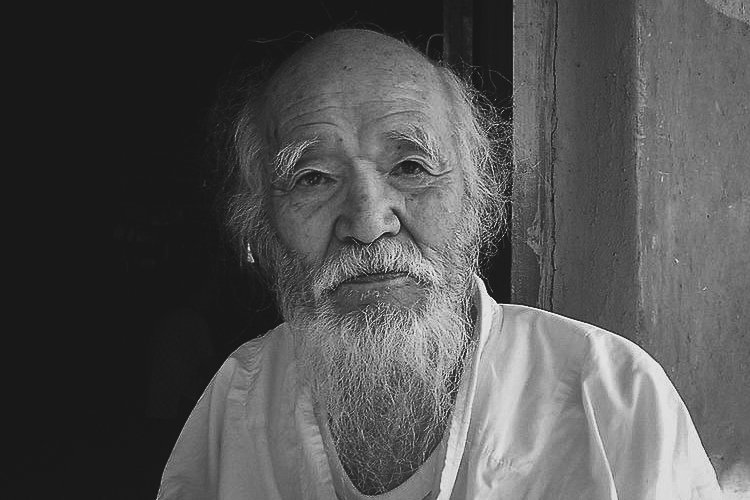
Something BIG is Stirring
We Need Your Support to Rewild Aotearoa

How did Masanobu Fukuoka’s methods influence modern sustainable agriculture?
Masanobu Fukuoka’s methods have had a profound influence on modern sustainable agriculture, reshaping practices and inspiring a global movement towards more ecologically harmonious farming techniques. Here are the key ways in which his methods have impacted sustainable agriculture:
Philosophy and Principles
1. Natural Farming: Fukuoka’s approach, often referred to as “natural farming” or “do-nothing farming,” emphasizes minimal human intervention. This method relies on natural processes to maximize crop outputs, avoiding the use of tilling, pesticides, herbicides, and synthetic fertilizers[1][2][4].
2. Harmony with Nature: Fukuoka’s philosophy is rooted in the belief that nature, left to its own devices, flourishes without human interference. His methods advocate for working within nature’s cycles rather than attempting to control or manipulate them[1][2].
3. Spiritual and Philosophical Underpinnings: Fukuoka’s work incorporates elements of Zen Buddhism and Taoism, viewing farming as a spiritual practice that fosters a deeper connection with nature. This perspective has influenced many within the natural food and lifestyle movements[2][3].
Practical Techniques
1. No-Till Farming: Fukuoka’s rejection of plowing and tilling has influenced the adoption of no-till farming practices, which help maintain soil structure, reduce erosion, and promote soil health[2][4].
2. Seed Bombing: Fukuoka popularized the use of seed bombs—clay balls containing seeds—as a method for re-vegetating barren lands and promoting biodiversity. This technique has been used globally for ecological restoration projects[4][5].
3. Cover Cropping and Relay Cropping: His methods include the use of cover crops and relay cropping to maintain soil fertility and reduce the need for chemical inputs. These practices have been shown to improve soil health and increase biodiversity[4].
Global Impact and Adoption
1. Inspiration for Sustainable Practices: Fukuoka’s methods have inspired farmers worldwide to adopt more sustainable practices. His influence extends beyond agriculture to environmentalism, influencing policies and practices aimed at reducing the environmental footprint of farming[1][4].
2. Educational Outreach: Fukuoka’s farm became a learning center for scientists and farmers from around the world, who sought to understand and implement his techniques. His books, particularly “The One-Straw Revolution,” have sold millions of copies and continue to inspire new generations of sustainable farmers[3][4].
3. Re-vegetation Projects: Fukuoka’s techniques have been applied in various re-vegetation projects, including efforts to restore desertified lands in countries like India, Greece, and the Philippines. These projects demonstrate the practical applications of his methods in diverse environmental contexts[4][5].
Challenges and Adaptations
1. Initial Yield Reductions: Transitioning to Fukuoka’s methods can initially result in reduced crop yields. However, over time, these methods can lead to sustainable and productive farming systems that enhance soil health and biodiversity[4].
2. Integration with Modern Agriculture: While some of Fukuoka’s principles have been challenging to integrate with conventional agricultural systems, many of his ideas have been adapted to modern sustainable farming practices. These include non-tillage, cover cropping, and promoting plant biodiversity[4].
In summary, Masanobu Fukuoka’s natural farming methods have significantly influenced modern sustainable agriculture by promoting practices that work in harmony with nature, reduce environmental impact, and enhance biodiversity. His legacy continues to inspire sustainable farming practices worldwide, offering a viable path towards more resilient and ecologically balanced agricultural systems[1][2][3][4][5].
Citations:
[1] https://worldpermacultureassociation.com/masanobu-fukuoka-natural-farming/
[2] https://www.permaculturenews.org/2020/07/25/the-philosophy-of-masanobu-fukuoka/
[3] https://tomchurch.co.uk/masanobu-fukuoka-on-natural-farming-philosophy-and-doing-nothing/
[4] https://en.wikipedia.org/wiki/Masanobu_Fukuoka
[5] https://www.permaculturenews.org/2020/08/08/fukuoka-natural-farming-and-the-developing-world/
